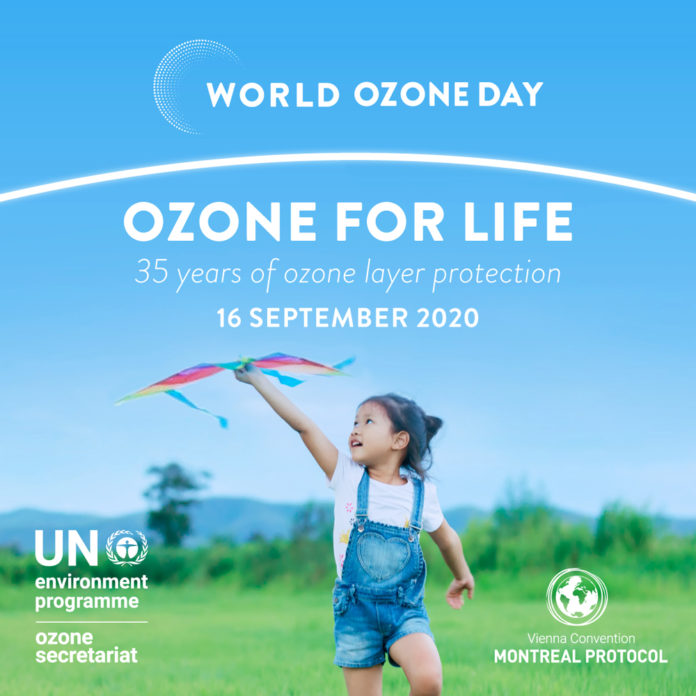Every 16 of September, for about three decades now, the world has commemorated the International Day for the Preservation of the Ozone Layer. The commemoration got its roots from the Montreal Protocol on substances that deplete ozone layer documents signed in 1987.
The aim is to raise awareness about the declining ozone layer, a thin gaseous protective layer that protects the earth from certain rays of the sun that are damaging to life on earth. The ozone layer is being perforated by substances called the ozone depleting gases such as methyl bromide, methyl chloroform, carbon tetrachloride and families of chemicals known as halons, chlorofluorocarbons (CFCs) and hydrochlorofluorocarbons (HCFCs).
The theme for this year’s event is Ozone for life.
On September 16, 2020 Nigeria joined the rest of the world to commemorate the International Day for the preservation of the Ozone Layer.
Nigeria’s Minister of Environment, Dr Mohammed Mahmood Abubakar on the occasion revealed that Nigeria has met its compliance obligations under the Hydrochlorofuorocarbons phase-out management plan of the Montreal Protocol.

He made the revelation during the extended Ministerial Press Briefing for the commemoration of the year 2020 International Day for the preservation of the Ozone Layer.
“We have met the compliance obligations under the protocol by achieving the 10% reduction of our Hydrochlorofuorocarbons importation from the baseline in 2015,” he said.
Read also: Former minister calls for speed up of Ogoni cleanup
“We are now on track to achieve further reduction of 35% consumption by the end of this year.”
Nigeria signed the Montreal Protocol in 1988, a year after it came into existence. And according to the minister, the country has ratified all its related amendments and have been implementing the protocol’s Ozone Depleting Substances phase-out programme in Nigeria assisting over 600 large, small and medium scale enterprises in the Foam, Refrigeration and Air conditioning, Aerosols, Fire protection and solvent sectors to convert to Ozone friendly substances and technologies.
There are still fears from experts though that many fairly used refrigerators containing ozone depleting gases and other such materials imported into the country may pose dangers and take away from the wins described by the minister.
Under the Multilateral Environmental Agreements that Nigeria is a party to the procedures of the procedures at Africa System House, Vitapour Nig. Ltd (a subsidiary of Vitafoam Nig. Ltd), for the formulation of Ozone-friendly systems in the manufacture of rigid polyurethane foam, was upgraded completed in 2019 and is ready for commissioning, the minister said.
“Studies have shown that replacing climate potent gases creates an opportunity to increase the energy efficiency of cooling equipment by 10-50 per cent thereby significantly reducing energy cost to consumers and businesses,” he added.
Abubakar called on Nigerians to be steadfast in their efforts to limit climate change impact even as the world grapple with the challenge of Covid-19.
“As we deal with the impacts of the global pandemic, it is pertinent to be conscious of climate action as it could cause even more misery and disruption than Covid-19: we must therefore be resolute in our efforts to limit it,” he said.
He added that despite global challenge occasion by the outbreak of Covid-19 and its impact on the nation’s health and economy, the Federal Ministry of Environment remain resolute in its resolve to phase out Ozone Depleting Substances and activities, recognising the importance of the Refrigeration and Air-conditioning servicing sector in guaranteeing food security and availability of medicines through effective and efficient preservation as well as providing thermal comfort in hospitals and homes.
Delivering a goodwill message from the United Nations Industrial Development Organisation, Environment Expert, Oluyomi Banjo congratulated Nigeria for achieving 10% reduction of Ozone-depleting substance describing the nation has been proactive and exemplary.

















